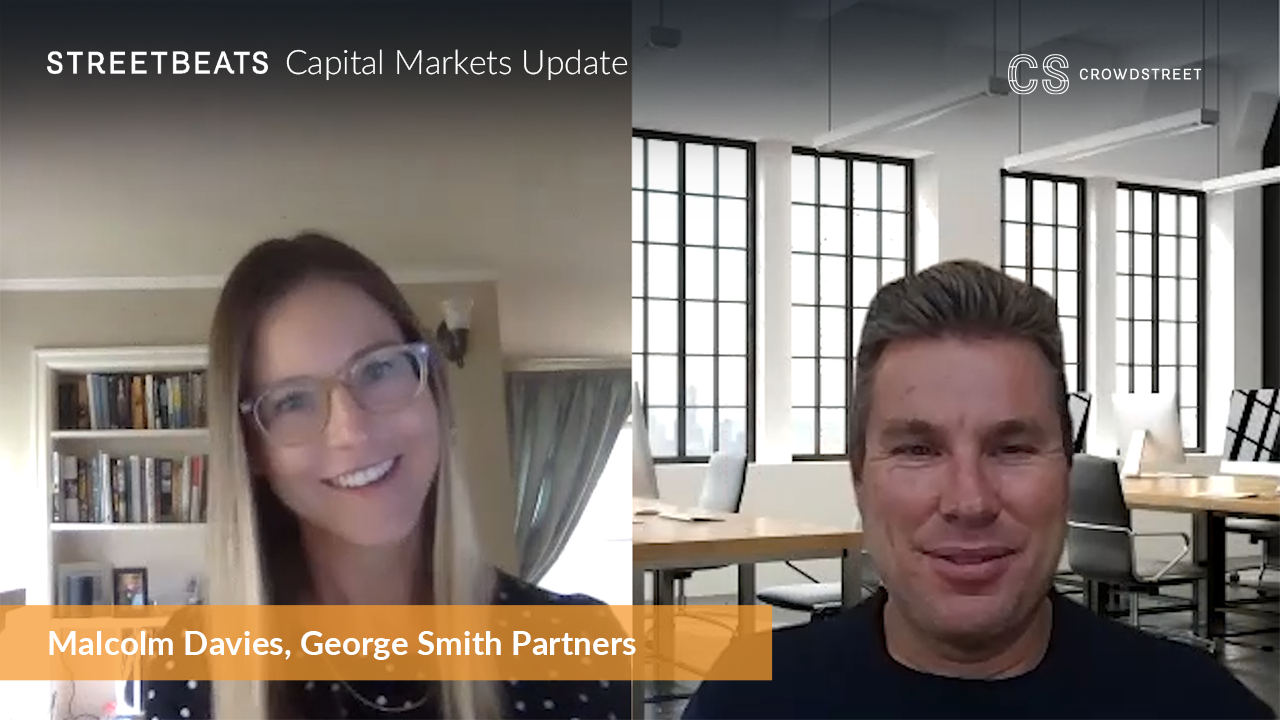
Crowd Street's Anna-Marie Allander Lieb is joined by Malcolm Davies, Principal and Managing Director at George Smith Partners to discuss the latest TSA travel numbers and the potential return of business travel, market liquidity, and what's happening on college campuses.